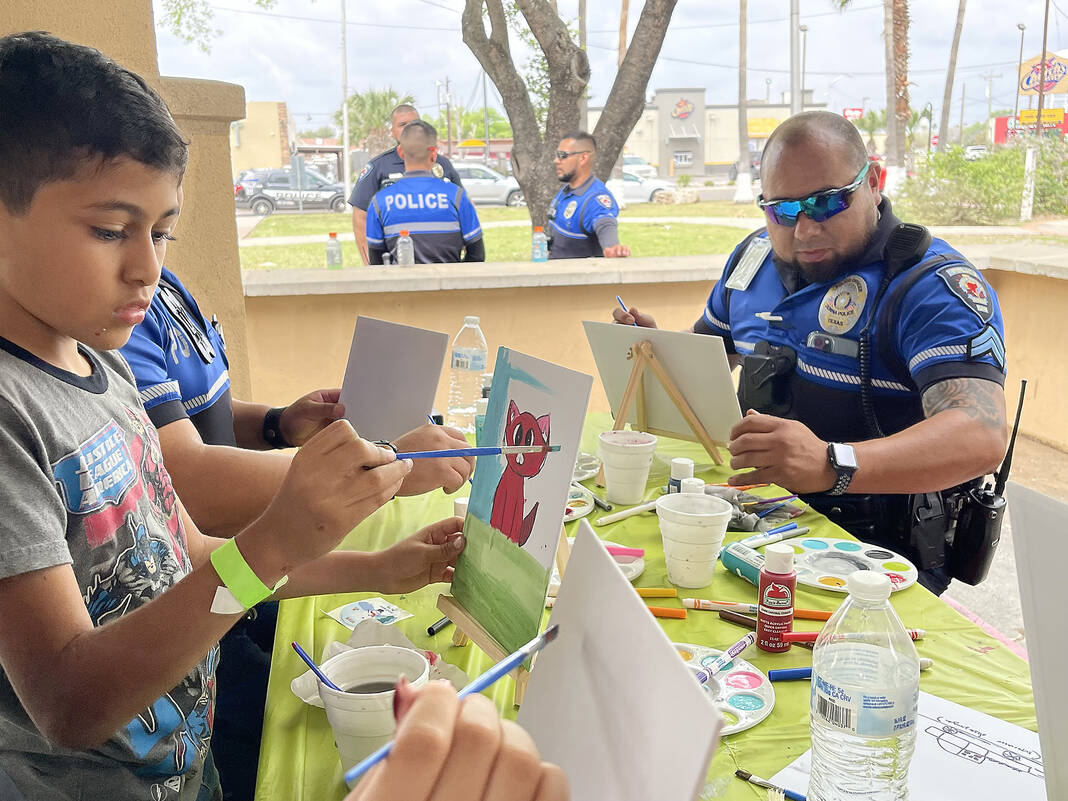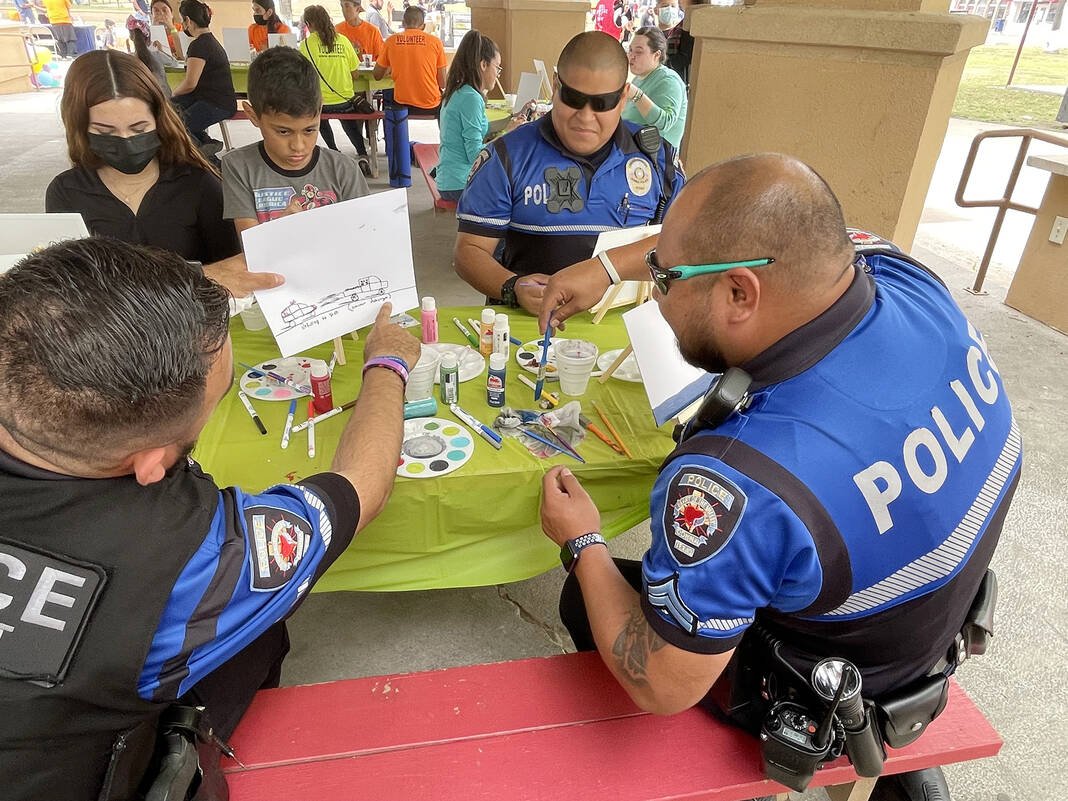DONNA — While the COVID-19 pandemic may not be over, the Rio Grande Valley has come a long way from those first days and weeks when the coronavirus sent fear and panic rippling through our community.
In those early days, the virus did more than spread illness and death, however; it also sent uneasy ripples into the collective mental health of the Valley. Local experts reported the pandemic led to an increase in substance abuse and people seeking mental health care.
“As the pandemic progressed… we were told to quarantine, to social distance and that was good so that we wouldn’t get contagious, so that we wouldn’t get the virus. But, what it did in terms of our mental health, it really affected our mental health because people were not used to being in isolation,” Marisa Ugalde said during a community mental health awareness event held in Donna.
Ugalde was one of several professionals who took part in the “Walk Away From Stress” event hosted in partnership with the city of Donna, Behavioral Health Solutions and the UNIDAD Coalition on Saturday morning.
A doctor of professional counseling at The Counseling Center in Weslaco, Ugalde said she saw an uptick in the number of patients seeking out help in dealing with the heightened stresses brought on by the unknowns of COVID-19.
As the pandemic swept across the globe, she saw an increase in the number of patients suffering from anxiety disorders, especially among those who work in industries that were suddenly thrust onto the frontlines against the virus: medical workers, teachers and parents.
“They were becoming very overwhelmed with all of the responsibilities,” Ugalde said.
The stress caused by those increased responsibilities didn’t even take into account the mental health damage caused by the virus itself, from watching loved ones become ill, to being unable to hold proper funerals.
“The stresses of seeing a family member go through having COVID-19 and deteriorating and people actually developed post-traumatic stress disorder based on what was happening,” Ugalde said.
“Things like that were very, very traumatic for a lot of people,” she said.
People did their best to cope, but not always in the most appropriate ways, according to Vianca Vieyra, a coordinator with the UNIDAD Coalition, which focuses on substance abuse prevention.
Vieyra said UNIDAD saw an increase in alcohol use, vaping, and prescription drug abuse during the early days of the pandemic.
“And a lot of that came from people that were using substances as a way to cope with what was going on — whether it was stress, whether it was anxiety, whether it was problems with family members — some of these substances just seemed like the solution for them,” Vieyra said.

Making matters worse, UNIDAD also noticed that people were putting their recovery efforts on hold right as those pandemic-induced stressors were at their worst.
“Because of everything that was going on, recovery or treatment was not a priority for a lot of people, because now they were dealing bigger stressors, like finances, jobs… So, they kind of put their own recovery and treatment (on the) backburner,” Vieyra said.
People have slowly been returning, seeking the help UNIDAD offers, including peer-to-peer recovery services and support groups, and treatment for youths and adults, but the pandemic has caused lasting effects.
That’s part of the reason UNIDAD organized Saturday’s event. The coalition wanted to empower people with constructive ways to combat stress and mental health issues.
“I don’t think any of us were exempt from what we’ve been going through. I think even the person that had the healthiest coping skills, strategies and all that stuff, they probably even felt it, too,” Vieyra said.
As a mental health professional herself, Ugalde agreed, saying even she needed reminders for “self-care.”
Part of Saturday’s event involved showing attendees practical self-care tips, including through artistic activities, exercise and mindfulness.
For example, Ugalde guided attendees through a breathing technique.
“I taught them just how doing three deep breaths and holding and then exhaling, how that can help reduce some of the stress,” Ugalde said.
Another volunteer walked the crowd through making drawings of things that caused stress, and then crumpling up the drawings as a way to physically manifest letting go of those stressors.
“It’s super amazing how our brain works, but sometimes it can be our biggest enemy, too,” Vieyra said, referring to one of the most confounding parts of dealing with a mental health issue — when a person’s ability to combat anxiety or depression becomes hampered by intrusive thoughts.
It’s perhaps the biggest issue counselors help patients to confront, Ugalde said.
“The big thing that we do and we help with in counseling is identifying your negative thoughts and your negative self-beliefs. So, if you can do that on your own — identify your negative self-beliefs — and make it a goal to dispute and reframe, that’s definitely going to be helpful,” she said.





